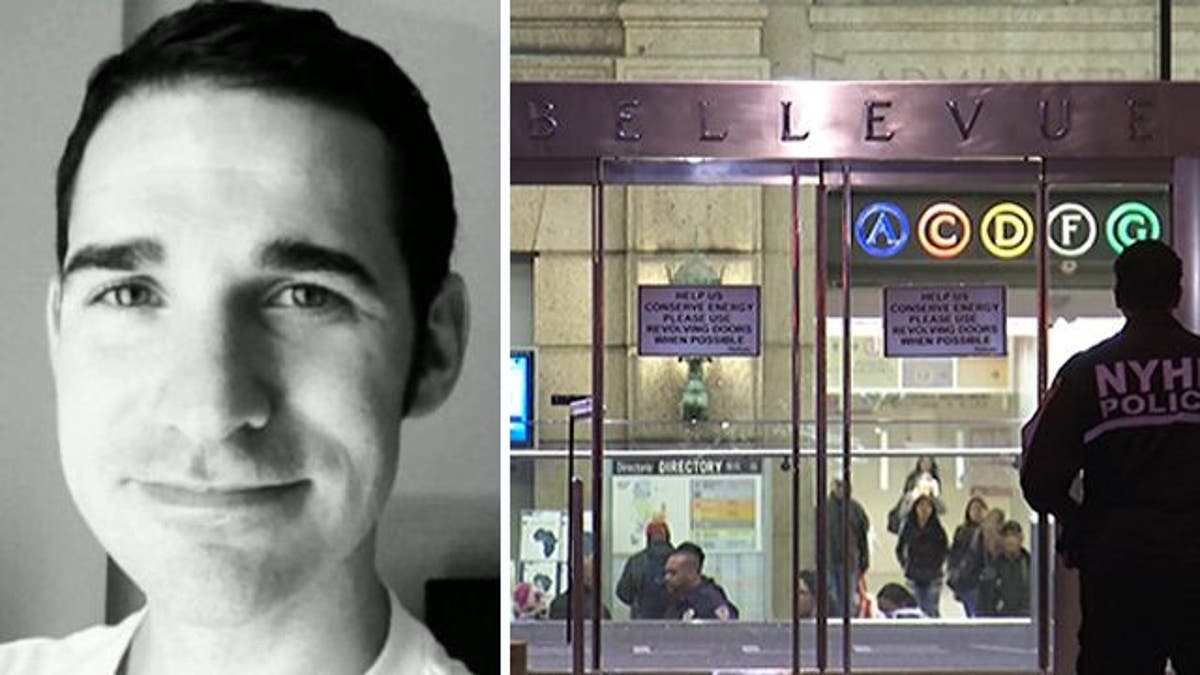
An American doctor who caught Ebola while treating patients in Guinea was a hard worker who conscientiously followed safety procedures, two colleagues said Saturday.
Craig Spencer is being treated for Ebola in New York City after coming down with a fever on Thursday, about a week after he returned from Guinea. The 33-year-old was working at a Doctors Without Borders clinic in Gueckedou, in southeastern Guinea, according to two members of the clinic's staff.
The staffers - a hygienist and a social worker - spoke on condition of anonymity because they were not authorized to talk to the press. Doctors Without Borders has confirmed an American doctor is ill, but it has refused to release details about Spencer or his work, citing concerns for his privacy.
Gueckedou is the epicenter of the current Ebola outbreak in West Africa. The first cases were reported in that region in March, and the epidemic has since grown into the largest ever outbreak of Ebola, with more than 10,000 cases and nearly 5,000 deaths, according to figures released by the World Health Organization Saturday.
"We are demoralized and saddened by what's happened to Craig," said the social worker, who supports patients during what is typically a grueling and frightening illness. "He did excellent work."
Spencer's work included direct contact with sick people: taking their temperature, following the evolution of their cases, taking their vital signs and ensuring the clinic was properly maintained, he said.
"I'm asking myself how he got the virus because he was a rigorous man," added the hygienist, whose job is to clean patients, who often have severe diarrhea and are vomiting and bleeding profusely. "Since we learned that he was infected, we've had low morale. And we understand that we are also at risk despite the measures."
Doctors Without Borders has been a major provider of care during the current Ebola outbreak and in all recent ones. Its procedures for everything from how clinics should be set up to how doctors and nurses should take off protective equipment are considered the gold standard when dealing with highly infectious diseases, like Ebola.
At Ebola clinics, there are elaborate procedures for how health workers undress and disinfect their equipment and the site, and the hygienist said the disinfection teams at Gueckedou make sure those procedures are followed to the letter.
But Doctors Without Borders has warned that no matter how careful health workers are, the risk can never be zero. It said Friday that it did not yet know how Spencer became infected but that it is investigating.
Staff at the Gueckedou clinic are also redoubling their efforts to stay safe, the hygienist said.
"Since his sickness was announced, I've seen the bosses here looking to reinforce our protections and to see where there are weaknesses," he said.
Both workers said they thought the Gueckedou clinic is well maintained, with nothing taken for granted.
The hygienist said: "We are praying for Craig and for ourselves because we rub shoulders with death every day."
